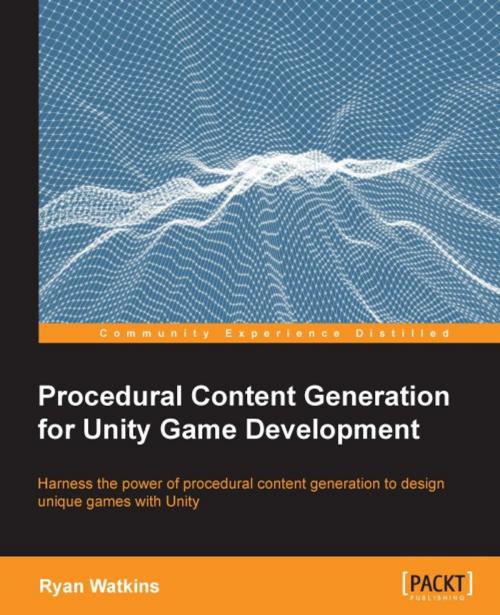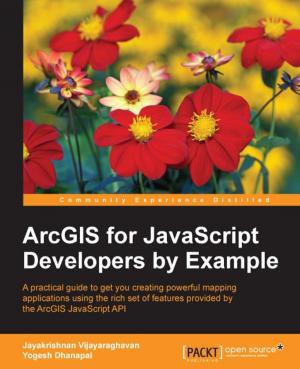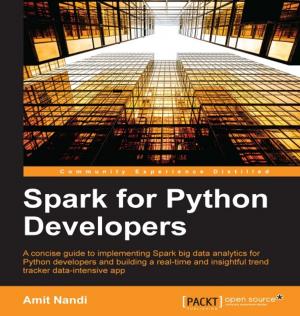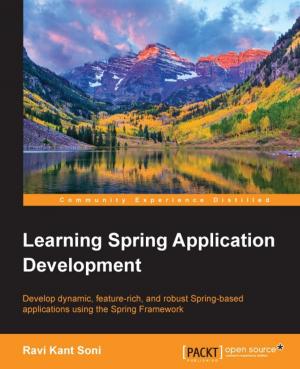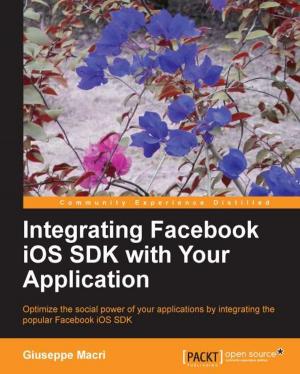Procedural Content Generation for Unity Game Development
Nonfiction, Computers, Advanced Computing, Programming, Expert Systems, Entertainment & Games, Game Programming - Graphics| Author: | Ryan Watkins | ISBN: | 9781785289675 |
| Publisher: | Packt Publishing | Publication: | January 30, 2016 |
| Imprint: | Packt Publishing | Language: | English |
| Author: | Ryan Watkins |
| ISBN: | 9781785289675 |
| Publisher: | Packt Publishing |
| Publication: | January 30, 2016 |
| Imprint: | Packt Publishing |
| Language: | English |
Harness the power of procedural content generation to design unique games with Unity
About This Book
- Learn the basics of PCG development
- Develop a 2D game from start to finish
- Explore all the different ways PCG can be applied in games
Who This Book Is For
This book is for Unity game developers, especially those who work on indie games. You should be familiar with Unity and C# scripting but you'll be able to jump in and start learning PCG straightaway.
What You Will Learn
- Understand the theory of Procedural Content Generation
- Learn the uses of Pseudo Random Numbers
- Create reusable algorithm designs for PCG
- Evaluate the data structures for PCG
- Develop smaller games with larger amounts of content
- Generate content instead of spending time designing every minute detail
- Learn when and how to add PCG to your game
- Learn the fundamental techniques of PCG
In Detail
Procedural Content Generation is a process by which game content is developed using computer algorithms, rather than through the manual efforts of game developers. This book teaches readers how to develop algorithms for procedural generation that they can use in their own games. These concepts are put into practice using C# and Unity is used as the game development engine.
This book provides the fundamentals of learning and continued learning using PCG. You'll discover the theory of PCG and the mighty Pseudo Random Number Generator. Random numbers such as die rolls and card drafting provide the chance factor that makes games fun and supplies spontaneity. This book also takes you through the full development of a 2D game.
Starting with level generation, you'll learn how PCG can make the game environment for you. You'll move into item generation and learn the different techniques to procedurally create game items. Thereafter, you'll be guided through the more abstract PCG areas such as scaling difficulty to the player and even generating music! The book helps you set up systems within your games where algorithms create computationally generated levels, art assets, quests, stories, characters, and weapons; these can substantially reduce the burden of manually creating every aspect of the game.
Finally, you'll get to try out your new PCG skills on 3D terrain generation.
Style and approach
An easy-to-follow, project-based guide that will let you build a complete game by the end of the book using PCG.
Harness the power of procedural content generation to design unique games with Unity
About This Book
- Learn the basics of PCG development
- Develop a 2D game from start to finish
- Explore all the different ways PCG can be applied in games
Who This Book Is For
This book is for Unity game developers, especially those who work on indie games. You should be familiar with Unity and C# scripting but you'll be able to jump in and start learning PCG straightaway.
What You Will Learn
- Understand the theory of Procedural Content Generation
- Learn the uses of Pseudo Random Numbers
- Create reusable algorithm designs for PCG
- Evaluate the data structures for PCG
- Develop smaller games with larger amounts of content
- Generate content instead of spending time designing every minute detail
- Learn when and how to add PCG to your game
- Learn the fundamental techniques of PCG
In Detail
Procedural Content Generation is a process by which game content is developed using computer algorithms, rather than through the manual efforts of game developers. This book teaches readers how to develop algorithms for procedural generation that they can use in their own games. These concepts are put into practice using C# and Unity is used as the game development engine.
This book provides the fundamentals of learning and continued learning using PCG. You'll discover the theory of PCG and the mighty Pseudo Random Number Generator. Random numbers such as die rolls and card drafting provide the chance factor that makes games fun and supplies spontaneity. This book also takes you through the full development of a 2D game.
Starting with level generation, you'll learn how PCG can make the game environment for you. You'll move into item generation and learn the different techniques to procedurally create game items. Thereafter, you'll be guided through the more abstract PCG areas such as scaling difficulty to the player and even generating music! The book helps you set up systems within your games where algorithms create computationally generated levels, art assets, quests, stories, characters, and weapons; these can substantially reduce the burden of manually creating every aspect of the game.
Finally, you'll get to try out your new PCG skills on 3D terrain generation.
Style and approach
An easy-to-follow, project-based guide that will let you build a complete game by the end of the book using PCG.
